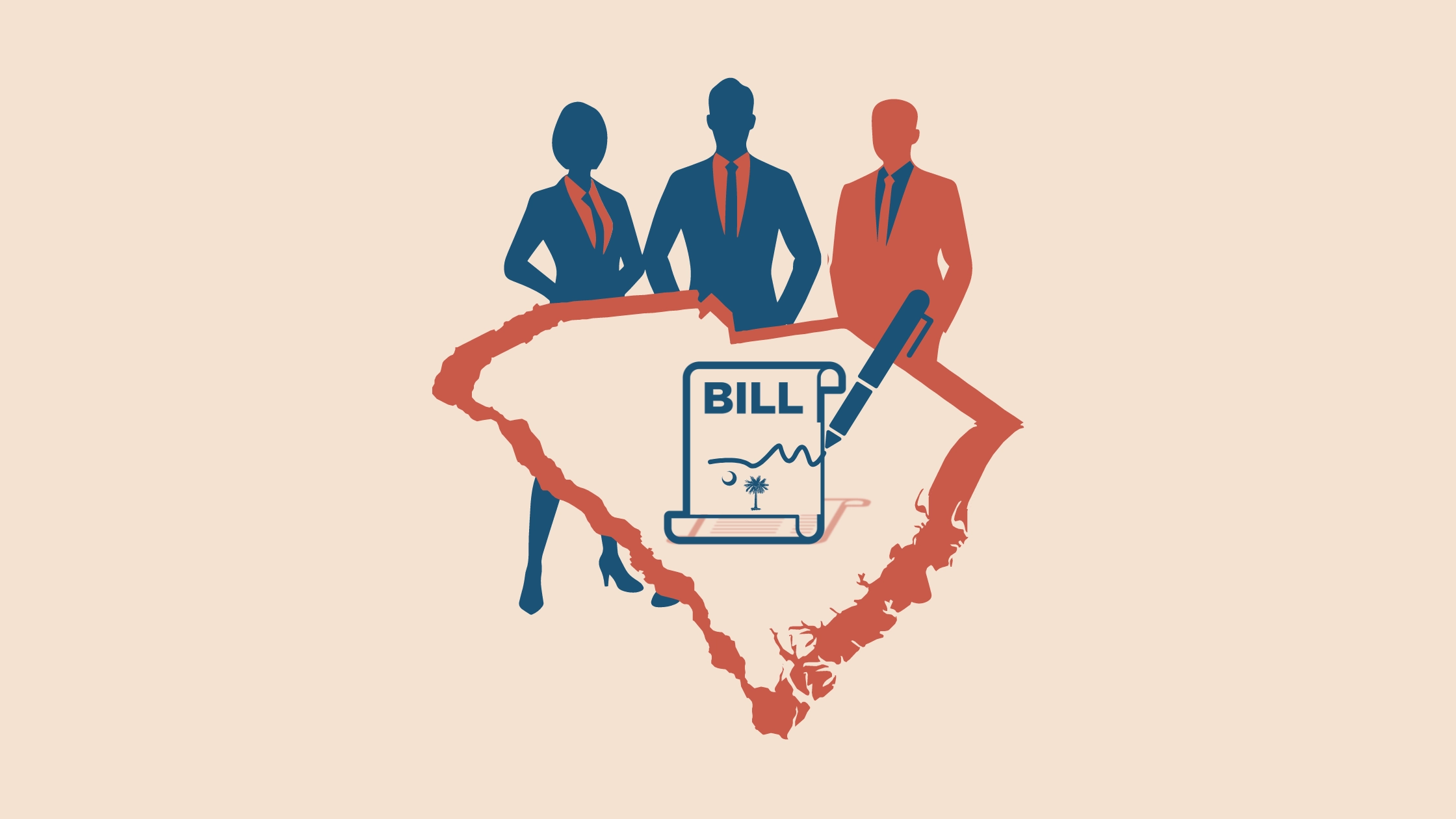South Carolina laws aren’t written in your local legislator’s garage. They’re crafted in polished offices, funded by deep pockets, and driven by think tanks you didn’t elect. Other well-funded groups have influence, but these policy factories shape much of the legislation you see.
The more you learn about their role, the more you realize most legislators are less like authors and more like couriers delivering someone else’s agenda.
Let’s take a closer look.
What is a think tank?
Answer - They call themselves nonpartisan policy experts. In reality, most think tanks are dressed-up advocacy machines, producing research tailored to whatever their donors want pushed through the legislature.
They publish white papers, build glossy websites, host forums with catered lunches, and then package their solutions in ways that lawmakers barely have to think about. Corporations, law firms, global nonprofits, and activist networks fund them because it’s cheaper and cleaner than lobbying outright.
What’s the real role of think tanks in South Carolina?
Answer: Once upon a time, the point of think tanks was to serve as research institutions. Their purpose was to produce studies, compile data, and provide policy recommendations for lawmakers, academics, and the public. Earlier think tanks, especially those formed in the early to mid-20th century, tended to maintain a more academic and advisory posture.
Over time, especially from the 1970s onward, that model shifted. Think tanks became activist engines. Many began blending research with direct legislative influence. This shift coincided with increased funding from interest groups and donors who wanted measurable results. By the 1990s and 2000s, think tanks operated more like policy advocacy groups, crafting legislation, marketing it to the public, and lobbying behind the scenes to get it passed. That’s pretty much their entire function in our state, and most likely in others as well. When a think tank promotes a policy, follow the money. It usually leads straight to the real beneficiary.
Are think tanks encouraging responsible legislating?
Answer – Responsible legislating requires careful thought, honest debate, and a deep understanding of the issues. It should be difficult and complex, anchored in the Constitution, and crafted to protect the rights of all people, including the few. Truthfully, legislation should prioritize repealing laws over adding new ones. But that’s not what happens when think tanks step in. They strip away the responsibility, handing legislators pre-packaged policies and talking points, all biased to serve the think tank’s agenda.
Do think tanks help protect the rights of South Carolinians?
Answer - Think tanks don’t exist to protect your rights. They exist to influence policy. That’s not the same thing.
Some may argue their work supports liberty, free markets, or constitutional principles, especially those operating under the conservative banner. But that’s a marketing pitch. Their real function is to shape their agenda strategically, then move it through the legislative process until it becomes law, regardless of whether it serves the public’s best interest.
Do think tanks engage in lobbying activities?
Answer - Yes, they do. Take a trip to the South Carolina Statehouse during session. Look around, and you’ll see think tank representatives lingering in the halls, waiting to take your legislator out to a nice dinner or invite them to a luxurious, all-you-can-eat-and-drink event where they’ll be handed an award for being the best legislator of the year. These social gatherings are calculated opportunities to influence lawmakers in a more informal setting, where policy discussions flow as freely as the wine.
This is where the lines between lobbying and “education” blur. Think tanks may not hand over cash, but they invest heavily in relationships that lead lawmakers to champion the policies they’ve crafted.
Are think tanks a revolving door for legislators?
Answer – Absolutely, and this revolving door is one of the most concerning aspects of think tank influence. It’s not uncommon for legislators to leave public office only to resurface in a think tank, where they continue to push for the same policies they once advocated for in the legislature. Conversely, individuals from think tanks often find their way into government positions, bringing with them the agendas of the organizations they once worked for.
This revolving door creates a tight-knit relationship between think tanks and the legislative process, reinforcing their influence over our laws, often to the detriment of genuine public interest.
How do think tanks bias the legislative process?
Answer – Think tanks position themselves as neutral academic experts, and they’re skilled at building slick marketing campaigns, complete with cheat sheets for legislators, condensed summaries, talking points, and even full speeches. This presentation makes it easy for both legislators and grassroots supporters to trust them, paving the way for legislators to pass the bill.
The problems become clear here. The information provided by think tanks isn’t neutral, and it gives legislators an excuse to skip reading the bills they’re voting on. Ask them about specific details in a bill they supported, and many won’t know. They’ll promise to get back to you or point you straight to the think tank that wrote it.
It’s time to reevaluate the influence of think tanks.
Think tanks will continue to be part of South Carolina’s legislative landscape. The question is whether their work aligns with the priorities of the people who live here. That answer depends on how closely the public follows the process. Watching which bills they support, tracking the language they promote, and noting when the same organizations appear across multiple proposals creates a clearer view of their reach.
Legislative influence is easiest to understand when it’s mapped: who proposed the idea, who wrote it, who sponsored it, and who benefits if it becomes law. When citizens have that map, they can engage with their legislators using specifics rather than assumptions. That level of clarity strengthens the process for everyone involved.
Learn More
To dive deeper into how think tanks wield significant influence over policy, take a look at Berletic’s article and companion YouTube video, both titled “Who Really Controls US Foreign Policy?” While his focus is on foreign policy, the same holds true for U.S. domestic policy.

Subscribe to ConservaTruth's Email Newsletter for curated insights on South Carolina's legislative activities and conservative viewpoints, delivered straight to your inbox! With vetted and easy-to-understand information, our newsletter empowers you to become an informed and engaged citizen, actively participating in safeguarding our cherished Constitutional values. Don’t miss out on crucial updates—join our community of informed conservatives today!





Comments